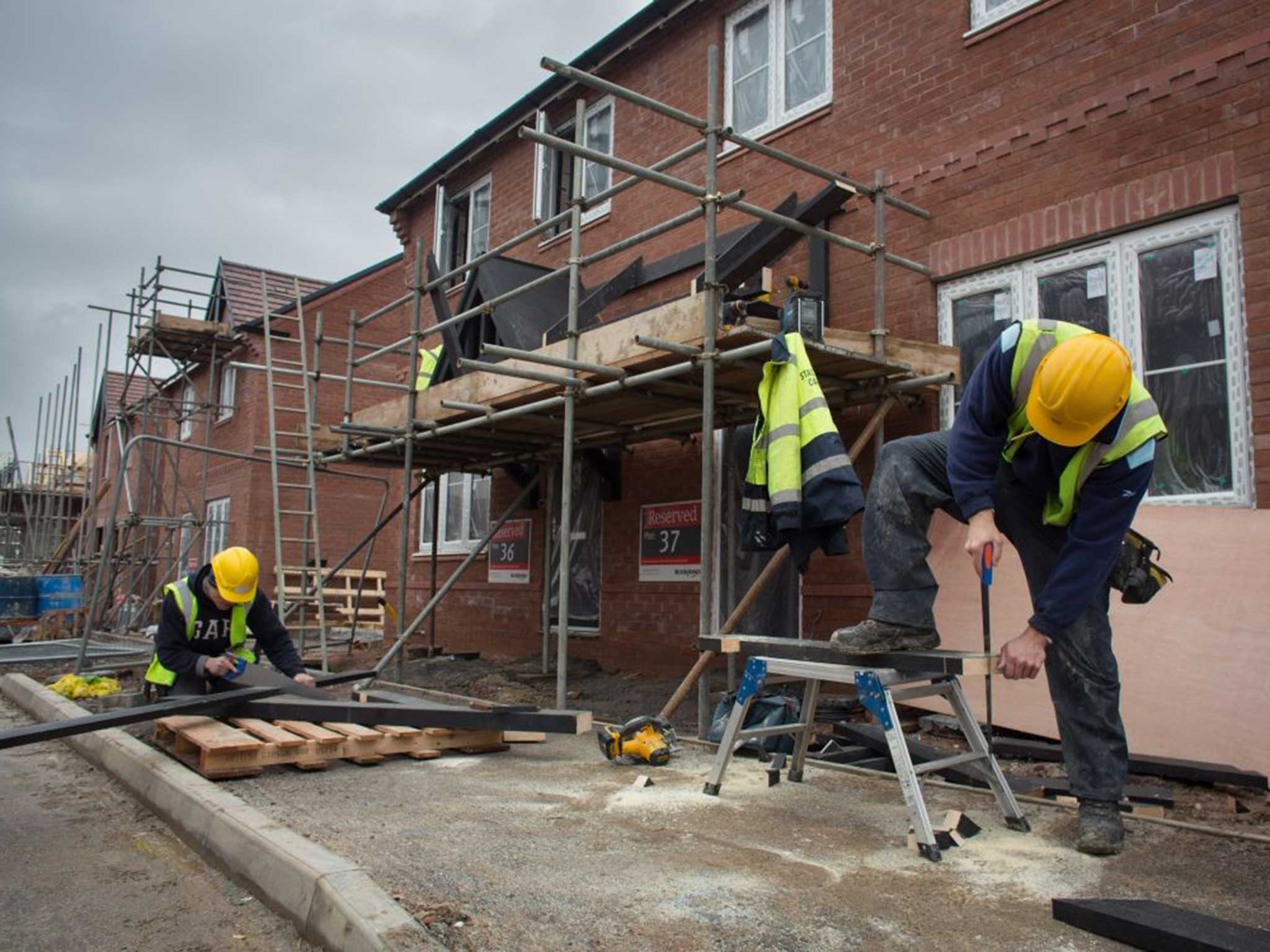Budgets delayed, projects stalled: how the general election has led to the worst building activity in two years
Civil engineers, commercial builders and, to a lesser extent, house builders all felt the squeeze

Uncertainty about the result of the general election helped push Britain’s builders down to their worst performance in nearly two years in April, the financial data firm Markit said.
The Markit/Chartered Institute of Procurement & Supply snapshot of industry fortunes, where a score above 50 signals growth, slowed to 54.2 from 57.8 last month. That represents the weakest overall growth since June 2013.
Civil engineers, commercial builders and, to a lesser extent, house builders all felt the squeeze. The headline reading was well below the 57.5 that had been expected by financial analysts.
Growth in new orders dipped while confidence is down from March’s nine-year high, echoing the weakness seen by UK manufacturers during April.
“The uncertain general election outcome appears to have put some grit in the wheels of decision-making,” said Markit’s senior economist, Tim Moore. “Construction firms widely noted delays with clients’ budget setting and a reduced propensity to commit to new projects.”
The chief executive of CIPS, David Noble, added: “This deceleration has been attributed to project delays and hesitancy as the country prepares to vote.”
Mark Robinson of Scape Group, a public sector procurement specialist, agreed that election uncertainty was probably behind the slowdown in building activity. But he added that this was a normal pre-election pattern.
“Our analysis of historic ONS [Office for National Statistics] data shows that output does hit the brakes in the run up to an election, but then the industry revs up in the subsequent months, rising by an additional 2 per cent on average – this is just part and parcel of a typical election year” Mr Robinson said.
The slowdown in the survey data suggests that construction continued to weaken into the second quarter of the year. Official statistics for the first quarter of 2015 showed that GDP growth halved to 0.3 per cent, down from 0.6 per cent previously. That was partly attributed to a 1.6 per cent contraction in construction output over the quarter.
There were some signs of jitters in currency markets as the poll approaches, with the one-month sterling/euro implied volatility gauge reaching 12.31, its highest levels since May 2010.
That reflects moves by traders to insure against the possibility of wild swings in the value of the pound in coming days if there is a period of tense political horsetrading. City analysts cited the risk of the Tory pledge of an in/out referendum on Britain’s EU membership in 2017, and Labour’s tax plans, as potential risks weighing on the minds of investors.
“Alas, there is something for investors to dislike with every outcome” said Eric Lascelles of RBC Global Asset Management.
However, some analysts suggested that, over the medium term, the potential for instability in the euro meant sterling was still likely to outperform the single currency.
“In general, people are more worried about the situation in the euro area than the political uncertainty in the UK” said Hamish Pepper a Barclays FX strategist.
Additional reporting by Katerina Kravtsova
Subscribe to Independent Premium to bookmark this article
Want to bookmark your favourite articles and stories to read or reference later? Start your Independent Premium subscription today.

Join our commenting forum
Join thought-provoking conversations, follow other Independent readers and see their replies